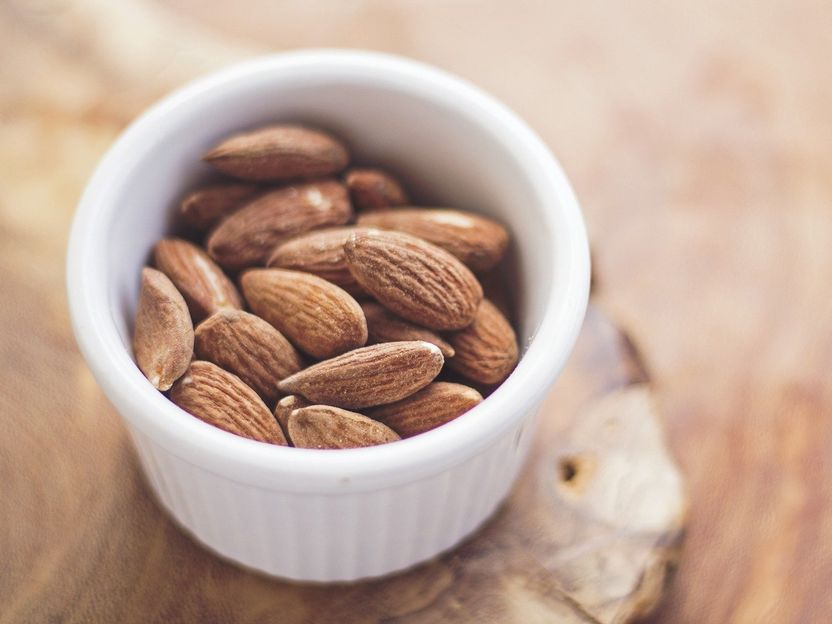Eating almonds improve the heart and nervous system's responses to mental stress
Snacking almonds in place of typical snacks
Research suggests that eating almonds in place of typical snacks may diminish the drop in heart rate variability that occurs during mental stress, thereby improving cardiac function.

Free-Photos/ Pixabay
This dietary strategy has the potential to increase cardiovascular resilience to mental stress, along with other heart health benefits of consuming almonds such as lowering LDL-cholesterol and improving the function of blood vessels.
The study by Dr Wendy Hall and Dr Sarah Berry, both from the School of Life Course Sciences, measured HRV in participants undergoing a mental stress challenge and saw improved measures of HRV in participants who had been replacing typical snacks with almonds over a six-week period. The study was funded by the Almond Board of California.
Mental stress is among the psychosocial factors thought to contribute to cardiovascular disease (CVD) risk. Heart rate variability (HRV), a measure of the fluctuation in time intervals between consecutive heartbeats, is an important indicator of the cardiovascular system’s response to stress and it is thought that lifestyle factors including physical activity and diet might impact HRV. Higher HRV represents greater adaptability of the heart in response to environmental and psychological challenges, while low HRV is linked to cardiovascular disease and sudden cardiac death.
This new research finding was part of the ATTIS study, a 6-week randomized control, parallel-arm trial, where participants with above average cardiovascular disease risk consumed a daily snack of almonds or a calorie-matched control snack providing 20% of each participants’ estimated daily energy needs.
In this study, researchers measured participants’ real-time heart rate (HR) and heart rate variability (HRV) at rest (lying down for 5-minute periods) and during a Stroop test (in which participants were asked to read colored words i.e. say “red” in a green font) to simulate short period of mental stress.
During acute mental stress, participants in the almond group showed better heart rate regulationcompared to the control group, indicated by statistically significant differences in high frequency power, which specifically evaluates beat-to-beat intervals (a measure of HRV).
This study shows that the simple dietary strategy of swapping almonds for typical snacks may bolster resilience to the adverse cardiovascular effects of mental stress by improving regulation of heart rate. We found that the stress-induced reduction in heart rate variability was lessened in the almond group compared to control following the dietary intervention, which indicates a cardiovascular health benefit. It is useful to think of having a higher HRV as the heart being able to switch gears faster in response to demands on the body, which means more cardiac resilience and flexibility during periods of stress. In the long term, this is beneficial for cardiovascular health.– Dr. Wendy Hall, PhD, co-principal investigator from the School of Life Course Sciences
Dr Sarah Berry, PhD, from the School of Life Course Sciences, added: “These results are particularly timely given the heightened levels of stress many of us are experiencing, alongside increased snacking, from working at home."
Most read news
Other news from the department science

Get the food & beverage industry in your inbox
By submitting this form you agree that LUMITOS AG will send you the newsletter(s) selected above by email. Your data will not be passed on to third parties. Your data will be stored and processed in accordance with our data protection regulations. LUMITOS may contact you by email for the purpose of advertising or market and opinion surveys. You can revoke your consent at any time without giving reasons to LUMITOS AG, Ernst-Augustin-Str. 2, 12489 Berlin, Germany or by e-mail at revoke@lumitos.com with effect for the future. In addition, each email contains a link to unsubscribe from the corresponding newsletter.




























































